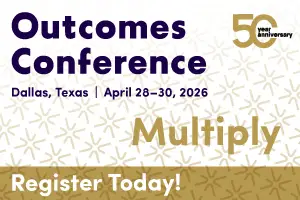
A Cosmic Lifeguard and a Lesson from Genesis
The hot sun glistens off the water of the busy community swimming pool as the lifeguard, high up in his elevated chair, scans the summer bathers with a trained eye.
Suddenly, he blows his whistle and points to a cluster of young boys engaged in some energetic horseplay. “
Hey guys, no forceable dunking. You can have fun splashing each other but holding someone under water is against the rules and it can lead to accidental drowning.”
Duly warned, the boys continue their fun with slightly less aggression. A few minutes later, needing to take a break from an hour in the hot sun, he lets a fellow lifeguard replace him as he climbs down and then dives into the pool’s deep end for a refreshing dip.
These two scenes of a lifeguard sitting in his chair and then diving into the pool give me a new picture for understanding a theology of creation care. The concept of being a faithful steward of our natural environment is as biblical as Genesis chapter two where God took Adam and “put him in the Garden of Eden to work it and take care of it,” (Genesis 2:15 NIV.)
But thanks to contentious dialogues on climate change and management of natural resources, often driven by political agenda, our understanding stewarding the environment has become clouded, confused, or lost altogether.
Returning to our swimming pool metaphor, let’s consider the two scenes again.
In the first, the lifeguard is in a position that puts him APART FROM the environment of the swimmers in the water. From the vantage point of his elevated chair, his job is to care for the overall safety of whatever happens in the pool. I
n the second scene where the lifeguard dives into the pool, he is now A PART OF the aquatic environment and subject to all the same laws of physics and buoyancy as everyone else in the pool. His title of lifeguard does not give him any special privilege or advantage in how a person must interact with water as any of the other swimmers.
All human beings created by God, have a similar dual-role relationship with His creation. First, as creatures composed of atoms and molecules, we are definitely A PART OF the cosmos that God has made and share equal identity in terms of our physical composition as rocks, plants and animals. But as people in whom He has also imprinted His divine image, we have the unique right to stand APART FROM the rest of creation as co-rulers with God—according to the mandate of Genesis chapter two.
So how does this dual role understanding help in crafting a theology of creation care? Because embracing the co-ruler mandate clearly drives a deep sense of RESPONSIBILITY for the world God has created. That, in turn, should mitigate any tendency we might have for neglect or complacency in caring for the physical environments in which we have been placed.
Secondly, accepting the fact that we are equal creations along with everything else on our planet leaves us with a sense of HUMILITY that should prevent any arrogance leading to potential abuse of the world around us. Armed with these paired values of RESPONSIBILITY and HUMILITY, we now have a means of crafting a proper and healthy relationship with God’s creation as we engage in guiding and guarding its complexity, beauty, and infinite variety.
What better way to define what it means to be a faithful steward and lifeguard (i.e. guardian of life) of this awesome God-create cosmos!
####
Jon Lewis is a Senior Associate for Partnership Advancement with OC International and focuses on encouraging global Christian leaders towards greater ministry effectiveness. With over 40-years of experience, he also served as a MAF mission pilot in Africa and CEO of Partners International.
Registration is now officially open for The Outcomes Conference 2021 in Jacksonville, Florida!
Rates increase on July 1, 2020.
REGISTER TODAY AND SAVE!
Featured Articles
CLA Membership
Join Christian
Leadership Alliance
A commitment to membership unlocks a more comprehensive access to content, community, and experiential learning. Here are the three membership exclusives that exist to significantly accelerate your professional growth and personal development.










